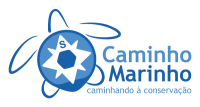About Caminho marinho
Caminho Marinho: Connecting Research, Extension, and Education for Marine Turtle Conservation
Caminho Marinho is a Brazilian initiative that aims to connect research, extension, and education as the path to marine turtle conservation and sustainable use of the marine environment under an ecosystem approach. The organization was founded in 2014 by a group of biologists who saw the need for a more integrated approach to address the challenges facing marine turtles in Brazil.
Marine turtles are ancient creatures that have been around for millions of years. They play a crucial role in maintaining healthy marine ecosystems by grazing on seagrass beds and controlling jellyfish populations. However, they face numerous threats from human activities such as fishing gear entanglement, poaching for their meat and eggs, habitat destruction due to coastal development, pollution from plastics and oil spills, among others.
Caminho Marinho recognizes that effective conservation efforts require not only scientific knowledge but also community engagement and education. Therefore, they work with various stakeholders such as fishermen associations, schools, NGOs (non-governmental organizations), government agencies at different levels (municipalities to federal), private companies with social-environmental responsibility programs among others.
One of Caminho Marinho's main projects is monitoring sea turtle nesting beaches along the coast of Espírito Santo state in southeastern Brazil. This region hosts three species of sea turtles: loggerhead (Caretta caretta), green (Chelonia mydas) and olive ridley (Lepidochelys olivacea). The monitoring involves daily patrols during nesting season (September-March) to identify new nests or tracks left by females coming ashore to lay their eggs.
The data collected from this project helps researchers understand population trends over time; identify critical habitats; estimate reproductive success rates; evaluate threats such as predation or erosion; inform management decisions such as beach zoning or hatchery relocation if necessary.
Another important project is the "Tartarugas Urbanas" (Urban Turtles) program, which aims to raise awareness among urban populations about the importance of marine turtles and their conservation. This program involves educational activities such as workshops, lectures, games, and art contests in schools and public spaces.
Caminho Marinho also works with fishermen communities to promote sustainable fishing practices that reduce bycatch of sea turtles and other non-target species. They provide training on how to use turtle excluder devices (TEDs) in fishing nets; how to handle captured turtles safely; how to report sightings or strandings of injured or dead animals.
In addition, Caminho Marinho conducts research on various aspects of marine turtle biology such as genetics, physiology, behavior, ecology. They collaborate with national and international institutions such as universities, museums, zoos for scientific exchange and capacity building.
Overall, Caminho Marinho's approach is based on the principles of participatory management: involving local communities in decision-making processes; promoting social inclusion; respecting cultural diversity; fostering environmental stewardship. Their work has been recognized nationally and internationally for its innovative strategies that combine science with education and community engagement.
If you are interested in supporting Caminho Marinho's mission or learning more about their projects visit their website at www.caminhomarinho.org.br



